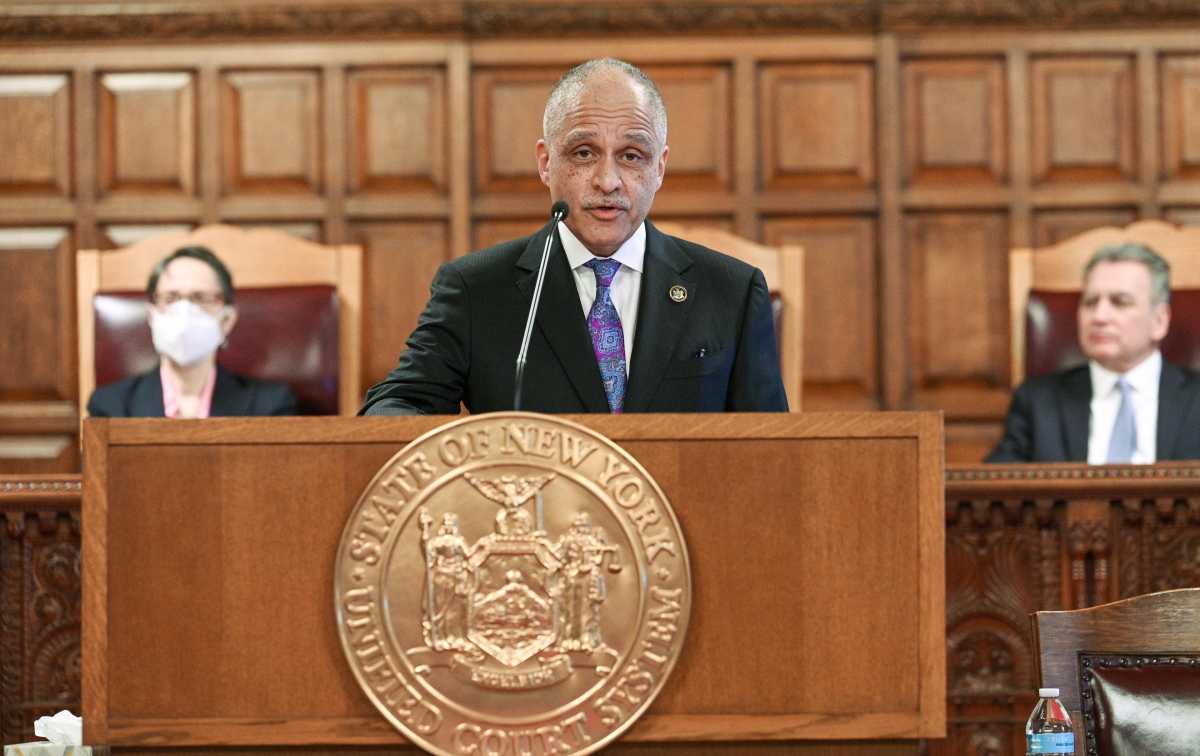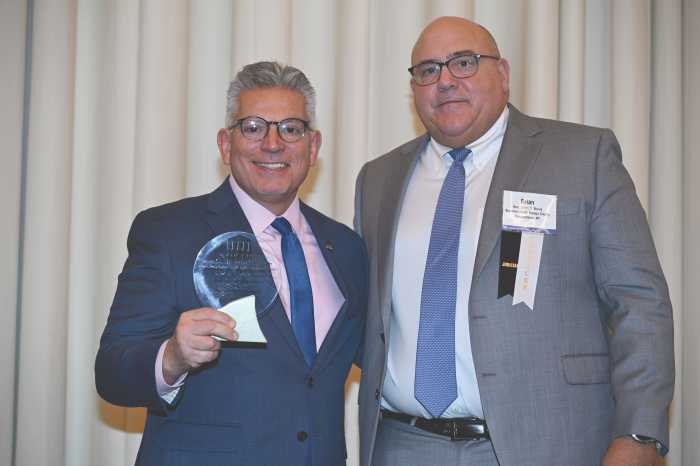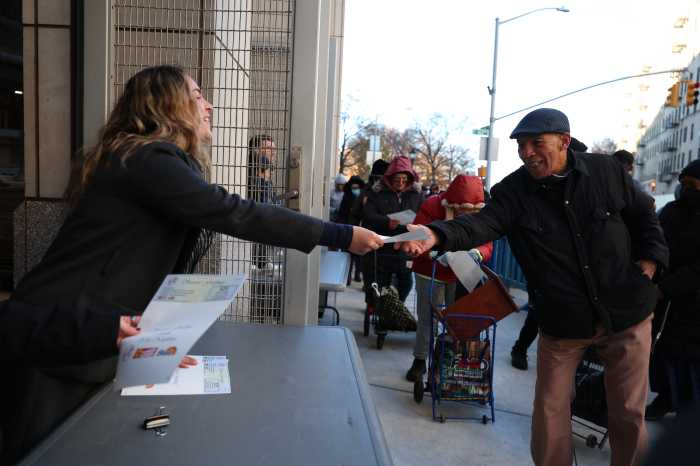New York’s top judge used his State of the Judiciary speech on Feb. 10 to continue his campaign to reduce New York’s incarcerated population, this time turning to the Legislature.
During his two-year tenure, Chief Judge of the Court of Appeals Rowan Wilson has zeroed in on reforming the state’s criminal court system. In his annual address last year, he proposed the expansion of problem-solving courts that minimize prison time in favor of community or treatment-based solutions.
This year, he directed his proposal to the state Legislature, calling on elected officials to pass an existing bill that would allow prisoners with long sentences to apply for a reduction.
“Put simply, our criminal justice system isn’t working,” said Wilson, who shared the podium in the Albany Court of Appeals courthouse with two longtime prisoners with exemplary records; and two who had been recently released. “Maybe it hasn’t really ever worked. Prolonged incarceration is very expensive, and it does not make us safer.”
Wilson said court officials are working with state legislators to “refine” a bill known as the Second Look Act, which would allow judges to reconsider sentences of a decade or longer when an incarcerated individual has demonstrated they have changed.
Wilson, who is the first Black judge to lead the state’s court system, cited the proposal and another that would increase diversion programs for defendants with mental health or drug abuse disorders as an opportunity for collaboration between the different branches of state government.
Neither bill has made it past committee in recent legislative cycles.
“Both of those pieces of legislation fundamentally embody the problem-solving ethos we want to instill deeply in the courts of our State,” he said. “They propose human-centric, community-oriented solutions that have the potential simultaneously to reduce crime and save taxpayer dollars.”
Wilson did not hold back his criticism of America’s principal model of criminal justice during his speech, comparing a system based around arresting and punishing the wrongdoer to the primitive Hammurabi Code — the Babylonian “eye for an eye” legal text. New York, he said, “has a larger per capita incarceration rate than that of Russia.” The state’s annual cost of incarceration per person in 2021 was over half a million dollars, or about $1,500 per day.
Wilson’s reformist vision of criminal justice stands in contrast to the law and order approach to public safety that state Republicans and moderate Democrats have rallied around in recent state election cycles. He was confirmed two years ago after state Democrats sank Governor Hochul’s first nominee for the appointment, Appellate Justice Hector LaSalle, whom some legislators and advocates deemed too conservative on labor and criminal justice issues.
During the speech, Wilson compared the criminal justice system to “a highway that ends in incarceration”. Economic assistance, drug treatment services or problem-solving courts might be one way someone “can exit the highway safely.”
“But what should lie at the end of the highway: when an individual has missed all the exits?” he asked.
To illustrate the opportunities for change Wilson yielded the podium to the state Corrections Commissioner, two New Yorkers who are currently incarcerated and two others who were recently released.
Wilson first introduced Daniel Martuscello, state commissioner of the Department of Corrections and Community Supervision, the first-ever former Corrections Officer in the role, who has been outspoken on focusing on rehabilitation to reduce incarceration and recidivism.
When he first took the position Martuscello said he “told those under our care that I believe in rehabilitation and redemption, and that I believe in them. I am committed to find new and innovative ways to harness their lived experiences so that we may tell their story.”
The commissioner was followed by Christopher Martinez, who has spent 23 years in prison after he was convicted for second-degree murder when he was 17. Martinez is serving a 65-years-to-life sentence at Shawangunk Correctional Facility in the Hudson Valley.
Growing up in South Brooklyn with two parents who were addicted to drugs, Martinez ”shuffled between five homes” and dropped out of high school before landing in prison. There had been times during his prison sentence when he contemplated suicide, he said, but education had given him a goal and turned his life around. In 2023, Martinez received a bachelor’s degree in sociology through Mount Saint Mary College.
“Today, I am one of many creating a new pipeline: a school-to-prison-to-college pipeline…that serves community interests, rather than taxing resources; that stands on the principles of community building through mentorship, restoration, and trust,” Martinez said.
Martinez “surely did something very wrong,” Wilson said. But, he questioned whether the judge who sentenced a teenager to a sentence that made him ineligible for release until he was 82 might also have made a mistake.
“What we are doing is not the best we can do,” Wilson said in closing his speech. “I know that, Commissioner Martuscello knows that, and I believe all of you know that too. We can do better. Won’t we?”
Read More: https://www.amny.com/law/





































